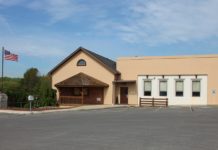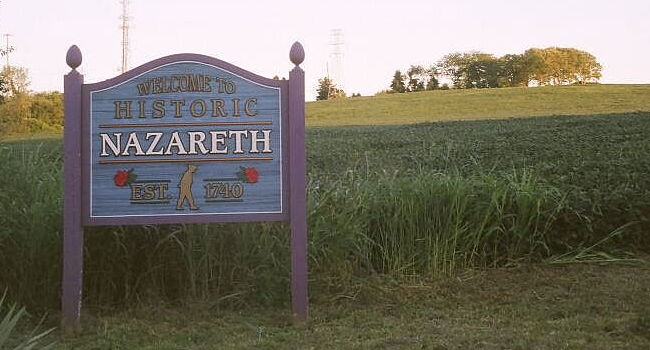On Wednesday, February 19, East Allen Township continued its curative amendment hearing against Rockefeller Group. Rockefeller used the hearing to stress that the rise of e-commerce has directly impacted the rise of development in the area.
The hearing began with the cross-examination of Johanna Chervak, Director of Real Estate Development for the Rockefeller Group. She was asked about traffic at the proposed site. Plans for Building A call for 468 spaces for cars, 240 spaces for tractor trailers, and 192 loading docks. Building B includes 460 car spaces, 229 trailer spaces, and 176 loading docs.
As Attorney Kimberly Freimuth explained, that could amount to over 1,674 trips per day if each truck is turned twice.
“That’s not how these facilities operate,” countered Chervak. “That’s a theoretical.”
However, no traffic study has been conducted by Rockefeller. According to Chervak, traffic studies are not completed until zoning is defined. Rockefeller gave no indication of the number of employees, but is in negotiation with a tenant for one of the lots in neighboring Allen Township. However, an NDA prevented Chervak from naming the prospect.
Chervak predicts that the number of employees will be half the number of parking spaces. Doubling up on the parking spaces helps account for shift changes throughout the day. Operations may be as frequent as 24 hours per day, seven days per week.
During cross-examination, Chervak indicated that Radar Drive will be extended to Weaversville Road. This will serve as secondary access to the site, something the audience in attendance vocally opposed. The entrance would be open only to cars and restricted to tractor trailers.
“We would rely on our engineer to design…height limiting devices over the entrance to prohibit any vehicles beyond a large SUV,” explained Chervak.
Traffic engineer Brian Harman of the Pidcock Company also testified during the hearing. He outlined the results of a 2013 traffic impact study. The study looked at the impact development would have on Willowbrook Road, Race Street, and Airport Road. Based on road improvements, up to 3.2 million square feet of warehouse could be supported, according to Harman. However, he said larger facilities could produce the same amount of traffic dependent on their use.
Attorney Freimuth described this as “finnegaling.” She said the numbers could be generated based on any type of use. This may free up additional capacity for another, more intense, user.
“You do not have any verification of any users that are appropriate at this time,” she added.
He compared warehouse development to the development of residential homes. He said a builder would not wait until every home has a designated user before completing construction. Homes could be for single individuals or for families and each has a different impact on traffic.
Dr. Zach Zacharia, director at the Center for Supply Chain Research and associate professor at Lehigh University, was also called as an expert witness by Rockefeller Group. He used his experience to argue that a warehouse is different from a logistic center.
A warehouse, he said, is a storage space between shipments to manufacturers, wholesalers, and retailers. Meanwhile, a modern logistic center is used when the product is directly sent to consumer. Intermediaries like retailers are cut out of the supply chain, saving producers millions and getting packages to consumers’ doorsteps in as little as a day.
“E-commerce has significantly influenced supply chain management,” he said. “The whole point of e-commerce is to get products from the manufacturer to a single consumer…[making] it convenient for consumers to order a product and have it arrive in two days.”
As brick-and-mortar stores continue to close due to sites like Amazon, logistics centers continue to grow as part of a multi-billion dollar industry. One-to-two-day shipping would not be possible without a logistics center, he argued.
Residents vocally opposed Dr. Zacharia’s testimony, questioning its relevance.
When pressed by Freimuth whether there was any clear distinction between a logistics center and a traditional warehouse as defined in the township’s ordinance, Zachariah admitted there is not.
The hearing will continue on March 30 at 7 p.m. at the Allen Township Fire Company.








